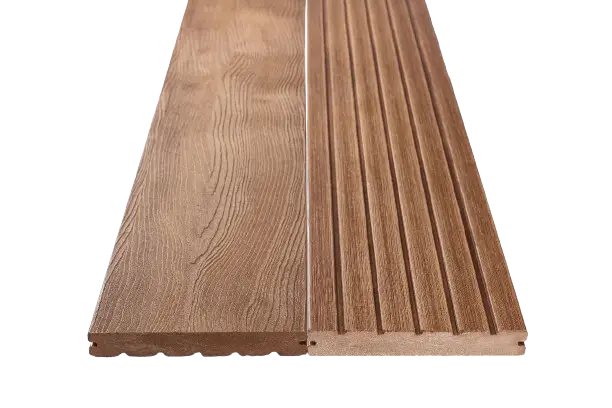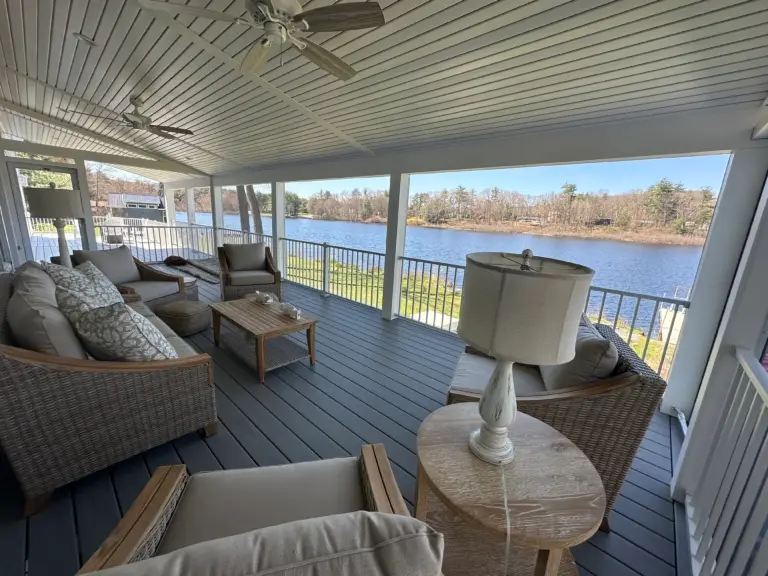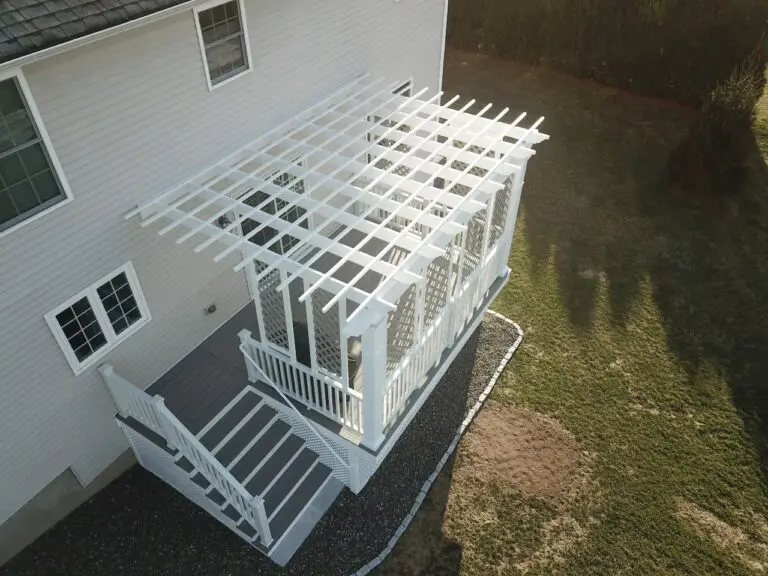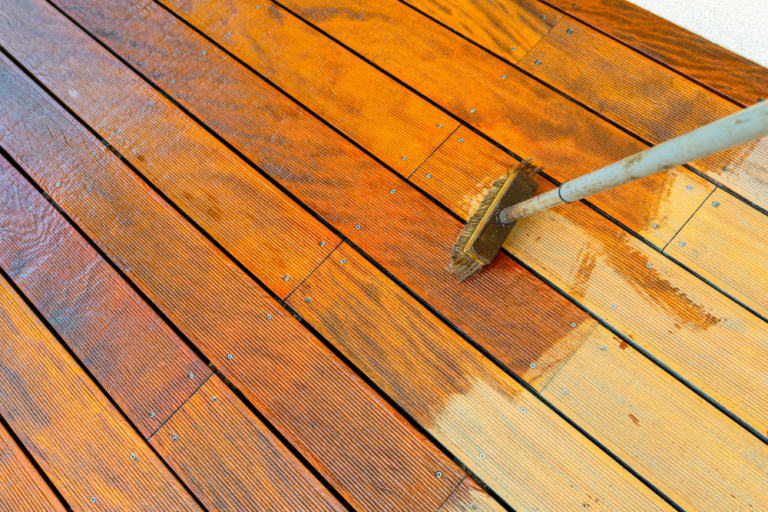When it comes to building a deck, one of the most important decisions you’ll face is choosing the right material. The material you select will not only influence the aesthetic appeal of your deck but also its durability, maintenance requirements, and overall cost. With several options available, understanding the differences between wood, composite, and PVC decking is essential for making an informed choice.
In this guide, we’ll explore the pros and cons of each material, helping you determine which option best suits your needs, budget, and lifestyle. Whether you’re aiming for a classic natural look, low maintenance, or maximum durability, this blog will provide the insights you need to make the right decision.
Wood Decking
Wood has been the traditional choice for decking for decades, offering a natural beauty and timeless appeal that many homeowners find irresistible. However, not all wood is created equal, and the type of wood you choose will significantly impact the performance and longevity of your deck.
Types of Wood
- Cedar: Known for its rich color and natural resistance to decay, cedar is a popular choice for decking. It offers a soft, smooth texture and is relatively lightweight, making it easy to work with. However, cedar is more prone to scratches and dents, so it may require more frequent maintenance to keep it looking its best.
- Redwood: Similar to cedar, redwood is naturally resistant to rot and insect damage, thanks to its high tannin content. It has a stunning reddish-brown hue that deepens over time, adding to its visual appeal. Redwood is a bit more durable than cedar but comes with a higher price tag.
- Pressure-Treated Lumber: This is one of the most affordable and commonly used decking materials. Pressure-treated wood is chemically treated to resist rot, insects, and fungus, making it a durable choice for outdoor use. However, it lacks the natural beauty of cedar or redwood and may require more effort to achieve a desired finish.
Pros of Wood Decking
- Natural Beauty: There’s no denying the appeal of natural wood. Its unique grain patterns, colors, and textures can create a warm, inviting outdoor space that blends seamlessly with the surrounding environment.
- Variety: Wood offers endless possibilities for customization. You can stain or paint it in various colors to match your home’s exterior or to create a unique look that reflects your personal style.
- Affordability: Depending on the type of wood, it can be a relatively cost-effective option upfront, especially when compared to composite and PVC materials.
Cons of Wood Decking
- High Maintenance: Wood decks require regular upkeep, including staining, sealing, and painting, to protect them from the elements. Without proper care, wood can quickly deteriorate, leading to issues like splintering, warping, and rotting.
- Durability Concerns: Wood is susceptible to the effects of weather and pests. In areas with high humidity or extreme temperature fluctuations, wood decks may not last as long as other materials.
- Environmental Impact: While wood is a renewable resource, concerns about deforestation and the environmental impact of logging practices make it important to choose sustainably sourced wood.
Composite Decking
Composite decking has become increasingly popular as a low-maintenance alternative to wood. Made from a blend of wood fibers and recycled plastics, composite decking offers the look of wood without the associated upkeep.
Composition and Manufacturing
Composite decking is manufactured by combining wood fibers, usually sawdust or wood chips, with plastic, often recycled polyethylene or polypropylene. These materials are bonded together using adhesives and formed into planks that mimic the appearance of wood. Advances in manufacturing technology have led to more realistic wood grain textures and a wider variety of color options, making composite decking an attractive choice for many homeowners.
Advantages of Composite Decking
- Low Maintenance: One of the biggest selling points of composite decking is its minimal maintenance requirements. Unlike wood, composite decking doesn’t need to be stained, painted, or sealed. A simple periodic cleaning with soap and water is usually sufficient to keep it looking great.
- Durability: Composite decking is highly resistant to the issues that plague wood, such as splintering, warping, and rotting. It also resists fading, staining, and mold growth, making it a durable choice for a long-lasting deck.
- Eco-Friendly Options: Many composite decking products are made from recycled materials, making them a more sustainable choice. Some manufacturers even offer products that are 100% recyclable, reducing their environmental footprint further.
Drawbacks of Composite Decking
- Higher Initial Cost: Composite decking typically costs more upfront than wood. However, this higher initial investment can be offset by the savings in maintenance and replacement costs over time.
- Heat Retention: Composite decking can become quite hot in direct sunlight, making it uncomfortable to walk on barefoot in the summer. This can be a concern in areas with high temperatures.
- Appearance: While composite decking has come a long way in terms of mimicking the look of wood, some homeowners still prefer the natural appearance of real wood. Additionally, the color options, while varied, may not achieve the exact shade or tone you desire.
PVC Decking
PVC decking is a fully synthetic option made from polyvinyl chloride, a type of plastic. Unlike composite decking, which contains wood fibers, PVC decking is 100% plastic, making it one of the most durable and low-maintenance options available.
What is PVC Decking?
PVC decking is engineered to resemble the look and texture of wood, but it’s entirely synthetic. The lack of organic materials means that PVC is highly resistant to moisture, insects, and the effects of weathering. This makes it an excellent choice for homeowners looking for a deck that can withstand harsh environmental conditions without requiring much upkeep.
Benefits of PVC Decking
- Extreme Durability: PVC decking is one of the most durable decking materials available. It doesn’t absorb moisture, so it won’t rot, warp, or develop mold and mildew. This makes it particularly well-suited for coastal areas or regions with high humidity.
- Low Maintenance: Like composite decking, PVC requires very little maintenance. It doesn’t need to be stained or sealed, and it resists staining and fading. Cleaning typically involves just a quick rinse with a hose or a light scrub with soap and water.
- Lightweight: PVC decking is lighter than both wood and composite decking, which can make installation easier and less labor-intensive.
Considerations for PVC Decking
- Cost: PVC is often the most expensive decking material, with higher upfront costs than both wood and composite. However, its longevity and low maintenance needs can make it a cost-effective choice over time.
- Aesthetics: While PVC decking is designed to look like wood, some homeowners may find that it doesn’t quite match the natural beauty of real wood. The color options may also be more limited compared to composite decking.
- Environmental Concerns: PVC is a plastic product, which raises concerns about its environmental impact. While some manufacturers offer recyclable options, the production and disposal of PVC can be less eco-friendly than other materials.
Comparing the Materials
Choosing the right decking material involves weighing the pros and cons of each option in relation to your specific needs, preferences, and budget.
Cost Comparison
- Wood: Typically, wood is the most affordable option upfront. However, ongoing maintenance costs can add up over the life of the deck.
- Composite: Composite decking is more expensive initially but offers savings over time due to its low maintenance requirements.
- PVC: PVC has the highest upfront cost, but like composite, it requires little to no maintenance, which can make it a worthwhile investment in the long run.
Maintenance Comparison
- Wood: Requires regular sealing, staining, or painting, as well as periodic cleaning and inspections for damage.
- Composite: Requires minimal maintenance, with occasional cleaning being the primary task.
- PVC: Also requires very little maintenance, similar to composite decking, with the added benefit of extreme durability in harsh conditions.
Durability and Longevity
- Wood: With proper care, wood decks can last 10-15 years. However, they are prone to damage from weather and pests. Well maintained hardwood decking can last up to 25 years. Garapa, also known as Brazilian Ash, can last over 30 years because of its high silica content.
- Composite: Composite decking can last 25-50+ years or more, with resistance to most forms of damage that affect wood. Trex Transcend®️ Lineage decking has a 50 year warranty.
- PVC: PVC decking can last even longer than composite, making it one of the most durable options available.
Aesthetic Differences
- Wood: Offers a natural, warm appearance that many homeowners prefer. The variety in wood types and finishes allows for customization.
- Composite: Offers a range of colors and textures that can mimic wood, but some may find it lacks the authentic look of real wood.
- PVC: While PVC can resemble wood, its fully synthetic nature may not appeal to everyone. However, it offers a clean, uniform look that some homeowners appreciate.
Making the Best Decision for Your Decking Needs
Choosing the right decking material is a crucial decision that will impact the appearance, maintenance, and longevity of your outdoor space. Wood, composite, and PVC each offer unique advantages and considerations. Wood provides a classic, natural look but requires regular maintenance. Composite offers a low-maintenance, eco-friendly option with excellent durability. PVC, while the most expensive, provides unparalleled durability and minimal maintenance, making it ideal for extreme conditions.
Ultimately, the best choice depends on your personal preferences, budget, and the specific requirements of your project. Consulting with a professional deck contractor can help you weigh these factors and make an informed decision. Whether you prioritize cost, aesthetics, or durability, there’s a perfect decking material out there for you.
If you’re ready to start your decking project or need expert advice on selecting the right material, contact us today for a consultation. We’ll help you create a beautiful, durable deck that you’ll enjoy for years to come.




